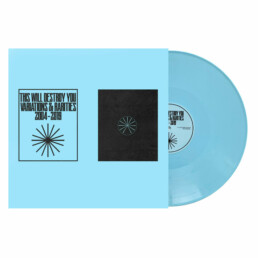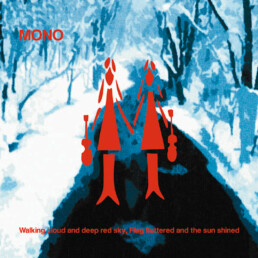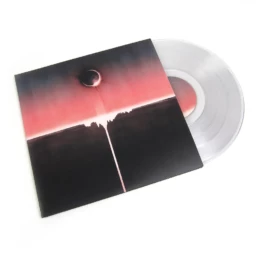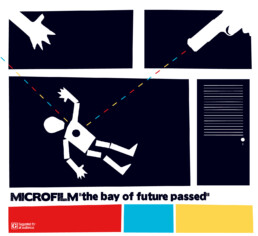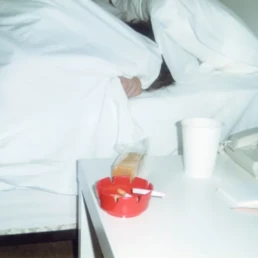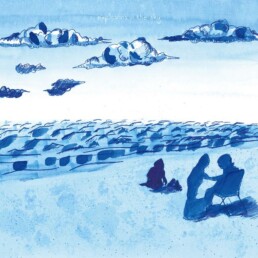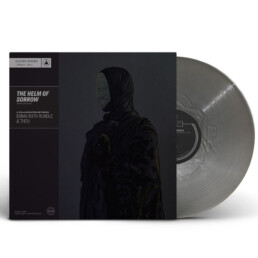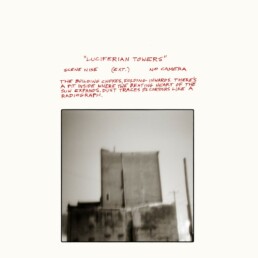Description
Mogwai melody always sounds like a eulogy for someone you’ve never met. Whether played on a hushed piano or pushed through Stuart Braithwaite and Barry Burns’ guitars, their writing is sad in a way that’s not personal: full of familiar emotions, but still opaque about the specifics. After 25 years, 10 studio albums, a dozen or so EPs, and plentiful film scores, Mogwai’s fingerprints have become easy to recognize. As they’ve aged into elder statesmen of post-rock—two terms they would undoubtedly hate—they’ve become like a football team running the Air Raid offense: They only call a handful of plays, but when they run them well, they’re basically impossible to stop.
While they do spring a few new tricks, Mogwai are hard at work in their usual mode on As the Love Continues, patiently building mountainous songs and willing themselves into scaling them. These steady climbs have long made them a go-to name for directors looking to add a little spooky gravitas to their films, and while they’ve mastered the ability to reshape the Mogwai sound to fit the needs of someone else’s creative project, at times that seemed to come at the expense of their own. Thankfully, As the Love Continues builds on the work of 2017’s strong Every Country’s Sun, retaining that album’s energy and expansiveness while deepening their investment in the undefined sadness that has long been their emotional hallmark. There’s so much saudade dripping off the rainy edifices of this album, it’s practically Glaswegian bossa nova.
Mogwai’s fascination with the gnawing, nameless gulf drives As the Love Continues. Whether because of the conditions of its creation—with the band locked down in Worcestershire, England, and producer Dave Fridmann working by remote from the U.S.—or the conditions of its release, 11 months into quarantine, the dull ache at the album’s center is potent; the music seems more personal, sweatier, hot with breath. In “Midnight Fit,” the band twists slowly around a single chord, wrapping it with wigged-out keys and scuds of guitar, while Atticus Ross’ string arrangement faints repeatedly in the foreground. The beat—skipping slightly, as if it’s nearly lost its footing—never changes, and as a result, it never quite steadies itself, keeping the song from ever feeling totally grounded. It’s an achievement that stands with their best work, and the song’s shrieking drama, taunted by chords and drums that refuse to alter their courses, gives it a sense of tragic inevitability. It’s like watching someone stumble unknowingly toward an open pit.
While cruel fate and thwarted spirit have long been Mogwai’s bread and butter, it’s refreshing to hear them so engaged with and energized by their particular darkness. When Braithwaite’s voice emerges from a field of distorted guitars and bass in “Ritchie Sacramento,” he sounds like he’s reporting from the end of the world after having done his best to stave off the inevitable; in “Dry Fantasy,” the persistent suck of the backing track erodes away at YMO-like keyboard tones and flashes of New Order’s romanticism. Even opener “To the Bin, My Friend, Tonight We Vacate Earth” surges beyond its inauspicious opening, becoming stadium-sized and suffused with valedictory grace in a way that suggests Nick Cave’s Ghosteen, all while keeping its hollow core intact.
This dedication to beautiful ennui would be insufferable if Mogwai felt like it made them special, but they’ve long delighted in seeming not to take this very-serious-sounding music very seriously. Mogwai have long known that the nature of what they do—sweeping, dramatic, and ultimately blank—makes a brilliant screen for their listeners’ projections, and to their immense credit, they’ve always made a point of shitting on any attempt to turn their music into something precious; they’re practically daring you to form an emotional connection to a song called “I’m Jim Morrison, I’m Dead.” When it works, this general insouciance deflates the grandeur and mythos, and ultimately makes the music itself feel more honest, even when it’s at its most irreverent.
To that end, a goofy ringtone beat kicks off “Here, Here We, Here We Go Forever,” eventually giving way to cement-thick distortion and what sounds like a guitar run through a talkbox, the vocals technically indecipherable but, emotionally speaking, easy to understand. They blast their way out of a soggy mid-album stretch with the uncharacteristically cheery rocker “Ceiling Granny,” whose tonal richness and triumphant crescendos make it feel like a distant cousin to Smashing Pumpkins’ “Rocket.” On “Supposedly, We Were Nightmares” they even play with the arpeggiated technicolors of Dan Deacon or Glassworks-era Philip Glass, and while it’s not necessarily an artistic success, it’s still charming to hear them write a song you could conceivably dance to.
Less effective is the pummeling “Drive the Nail,” the rare Mogwai song whose title accurately describes how it sounds; though they build toward relentless heaviness, the band doesn’t seem to know what to do with it, and ends up cycling through verses and choruses for seven minutes, their hammering never quite brutal enough to justify the repetition. Elsewhere, they set shrieking synths in the outer bands of “Fuck Off Money,” but the song’s lack of direction makes it feel like a hurricane in need of a path, and it ultimately spins out to nothing. Most disappointingly, Fridmann’s production buries a guest spot from saxophonist Colin Stetson, whose wild playing behind the Come on Die Young chording of “Pat Stains” provides a level of notational chaos that Mogwai, for all their love of volume and texture, simply don’t do on their own. Foregrounding order while a song builds to bursting in the background is one of the band’s best moves, but by never allowing Stetson to overtake them in the mix, they waste one of their most interesting collaborations.
Still, these are mostly problems of excess, all of them solvable by simply trimming the hour-long runtime, and Mogwai are always more interesting as maximalists. When it’s at its best, this album proves they’re becoming more certain of what their ambitions should be—and, crucially, who they are as a band. As the Love Continues comes off as a reminder of the emptiness of all things and the importance of finding meaning anyway. It’s a hymn to melancholy, and a strike against infinite sadness.
Side A
1. To The Bin My Friend, Tonight We Vacate Earth
2. Here We, Here We, Here We Go Forever
3. Dry Fantasy
Side B
4. Ritchie Sacramento
5. Drive The Nail
6. Fuck Off Money
Side C
7. Ceiling Granny
8. Midnight Flit
9. Pat Stains
Side D
10. Supposedly, We Were Nightmares
11. It’s What I Wanna Do, Mum
Additional information
| Weight | 600 g |
|---|---|
| Format | LP |


